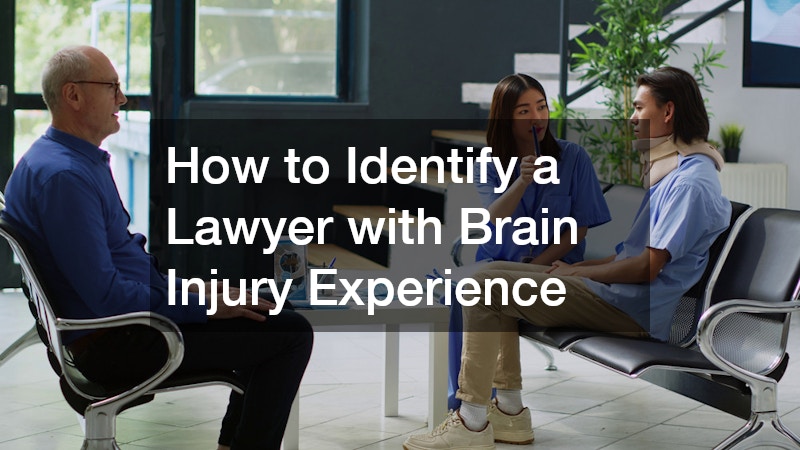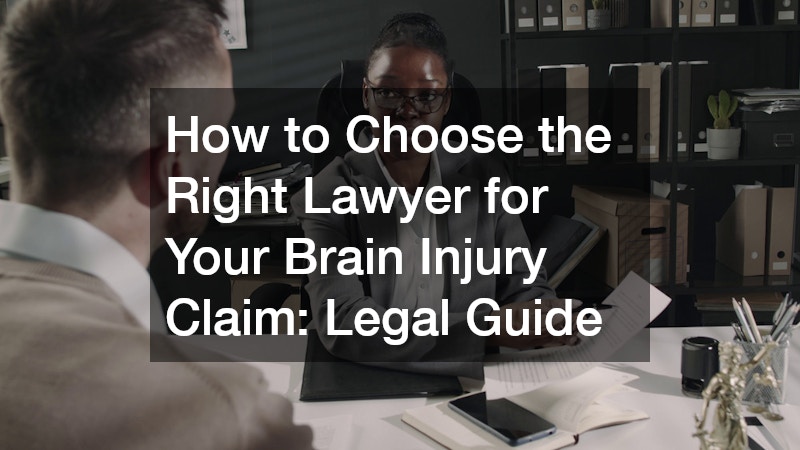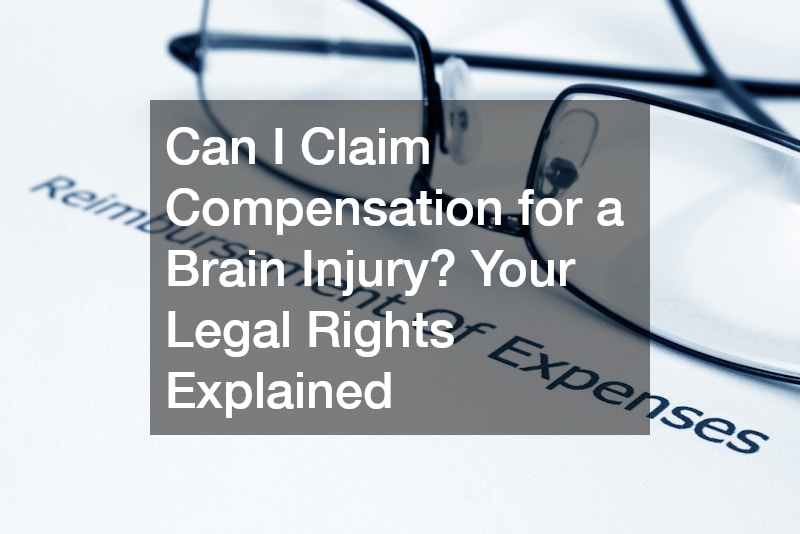
Suffering a brain injury—whether from a car accident, fall, workplace incident, or medical malpractice—is a life-changing event. Beyond the physical and emotional toll, victims and their families often face overwhelming legal, financial, and medical challenges. That’s why choosing the right lawyer for your brain injury claim is one of the most important decisions you’ll make. The right attorney can help you secure the compensation needed to cover long-term care, lost income, rehabilitation, and more.
This comprehensive guide will help you understand what to look for in a brain injury lawyer, what questions to ask, and how to make a confident, informed choice during one of the most critical times in your life.
What Makes Brain Injury Cases Unique?
Brain injury cases are significantly more complex than typical personal injury claims. Here’s why:
- Hidden and Delayed Symptoms: Traumatic brain injuries (TBIs) often have delayed or invisible symptoms, making diagnosis and legal proof more complicated.
- Long-Term Impact: TBIs can affect cognitive function, emotional regulation, speech, coordination, and overall quality of life, sometimes permanently.
- High Financial Stakes: Lifetime costs for brain injury treatment can exceed hundreds of thousands—or even millions—of dollars.
- Expert Testimony: Proving the extent and cause of a brain injury typically requires input from neurologists, neuropsychologists, life care planners, and economists.
Because of these complexities, it’s essential to work with an attorney who has specific experience in handling brain injury claims, not just general personal injury cases.
How to Identify a Lawyer with Brain Injury Experience

Not all personal injury lawyers are equipped to handle traumatic brain injury (TBI) cases. Look for a legal professional who has a track record of success in this area.
Key indicators include:
- Case Results: Ask for examples of past brain injury settlements or verdicts.
- Relevant Education & Training: Some lawyers pursue additional education or certifications related to neurological injuries.
- Published Work or Speaking Engagements: Have they written articles or spoken at conferences about brain injuries?
- Professional Associations: Membership in organizations like the Brain Injury Association of America (BIAA) or local trial lawyer associations focused on brain injury law.
Questions to Ask:
- How many brain injury cases have you handled?
- What were the outcomes?
- Do you have medical experts on call for these types of cases?
What to Look for During the Consultation
Your initial consultation—usually free—will give you critical insight into whether the lawyer is a good fit for your needs. Bring a list of questions and concerns, and take note of the following:
1. Communication Style
- Does the lawyer explain things clearly?
- Are they patient and empathetic, or rushed and dismissive?
2. Accessibility
- Will you work directly with the lawyer or primarily with paralegals?
- How will they keep you updated on the progress of your case?
3. Transparency
- Do they provide a clear explanation of legal fees, timelines, and case strategy?
Remember: A good lawyer should make you feel heard, not hurried. Trust your instincts.
The Importance of Trial Experience in Brain Injury Claims
While many personal injury cases settle out of court, some brain injury claims must go to trial, especially if the insurance company disputes the severity of the injury or refuses to offer fair compensation.
A trial-experienced attorney offers:
- Courtroom Confidence: The ability to present compelling arguments to a judge and jury.
- Negotiation Leverage: Insurance companies may offer better settlements when facing a lawyer known to take cases to trial.
- Stronger Litigation Resources: Trial lawyers usually have relationships with expert witnesses, medical professionals, and investigators.
Don’t be afraid to ask directly:
“How many brain injury cases have you taken to trial, and what were the results?”
How to Evaluate a Lawyer’s Track Record and Reputation
It’s essential to do your own research before signing any legal agreement. A lawyer’s reputation—among clients, peers, and courts—can impact the outcome of your case.
Here’s how to vet them:
- Read Online Reviews: Look for testimonials on Google, Avvo, Martindale-Hubbell, and law firm websites.
- Check Disciplinary Records: Search your state bar’s website to see if the attorney has any past ethical violations.
- Ask for References: A reputable attorney won’t hesitate to provide past clients willing to share their experiences.
- Look at Awards or Recognitions: Honors from legal publications or bar associations can be a positive sign.
Understanding Legal Fees: What Should You Expect?
When hiring a brain injury attorney, most operate on a contingency fee arrangement. This means you won’t pay any legal fees upfront—instead, your lawyer is paid a percentage of your settlement or court award only if your case is successful. For many families facing steep medical expenses, this payment structure offers much-needed financial flexibility.
Typical fee percentages may include:
- Around 33% of the total settlement amount if your case is resolved without going to trial.
- Up to 40% or more if the case proceeds to court, reflecting the additional time, effort, and resources involved.
- Separate expenses like hiring expert witnesses, paying court filing fees and conducting investigations, which may be deducted from your settlement or billed separately.
Before you commit, be sure to clarify:
- When and how the lawyer’s fees will be taken from your settlement.
- Whether you’ll be responsible for upfront costs or reimbursing case-related expenses later.
- If the fee percentage is negotiable under certain circumstances.
Always request a detailed written agreement that clearly outlines the terms, so there are no surprises as your case moves forward.
How Specialized Knowledge Impacts a Brain Injury Claim
Why does specialization matter?
A lawyer with deep knowledge of TBIs can:
- Properly evaluate the true value of your claim.
- Anticipate the insurance company’s defenses.
- Coordinate medical care and assessments that support your case.
- Secure expert witnesses who can testify about your long-term needs.
Unlike generalists, specialized lawyers understand the nuances of diagnosing and documenting cognitive and neurological damage. This expertise often results in higher compensation for clients.
Brain Injury Claim: Red Flags to Watch Out For

Unfortunately, not all attorneys have your best interests at heart. Here are red flags that signal a lawyer may not be the right choice:
- Guaranteed outcomes – No ethical lawyer can promise a win.
- Lack of interest in the medical details of your case.
- Poor communication or long delays in responding.
- No courtroom experience, yet pushing for a quick settlement.
- Excessive fees without a clear breakdown.
Trustworthy lawyers offer transparency, honesty, and a realistic view of your chances, not false hope.
How Involvement in Brain Injury Associations Can Benefit You
Lawyers actively involved in professional organizations related to brain injury often stay ahead of medical and legal trends.
Look for involvement in:
- Brain Injury Association of America (BIAA)
- North American Brain Injury Society (NABIS)
- State bar committees on personal injury or medical malpractice
- Local support groups or community health events
These affiliations suggest a genuine commitment to serving the brain injury community, not just chasing high-dollar cases.
What Role Do the Law Firm’s Resources Play?
Brain injury claims can be expensive to pursue. A well-funded law firm can invest in your case by:
- Hiring expert witnesses, such as neurologists or vocational experts.
- Conducting accident reconstructions or surveillance.
- Supporting long-term evaluations for future care needs.
Ask during your consultation:
“What resources does your firm bring to a complex brain injury case like mine?”
A small firm may offer personalized service, but ensure they have the financial and human resources to go the distance.
Final Checklist: Choosing the Right Lawyer for Your Brain Injury Claim
Before making a final decision, review this checklist:
✅ Does the lawyer have proven experience with brain injury claims?
✅ Have they won similar cases or taken them to trial?
✅ Are they transparent about fees and timelines?
✅ Do they listen to you and treat you with empathy?
✅ Are they well-reviewed by past clients?
✅ Do they have the resources and connections needed for expert support?
If the answer to most of these is “yes,” you’ve likely found a strong legal partner.
Key Qualities to Look for in a Brain Injury Lawyer
Choosing the right lawyer for your brain injury claim requires more than just finding someone with legal credentials. You need an attorney who understands the emotional, physical, and financial toll of brain injuries—and who has the skills to fight for full and fair compensation. Here are the key qualities to look for:
- Specialization in Brain Injury Cases: Not all personal injury lawyers have experience with TBIs. Look for one who regularly handles brain injury claims.
- Compassion and Patience: Your lawyer should treat you or your loved one with empathy, not as just another case number.
- Strong Negotiation Skills: A good lawyer can negotiate effectively with insurance companies for a better settlement.
- Trial Experience: If a fair settlement isn’t possible, your lawyer should be prepared and capable of going to court.
- Access to Experts: They should have relationships with medical, psychological, and economic experts to support your case.
- Responsive Communication: You need someone who returns your calls, answers questions clearly, and keeps you informed.
- Proven Track Record: Look for past results in brain injury claims that demonstrate their success and competence.
These qualities are essential for maximizing your chances of a successful outcome.
Conclusion: Empowering Your Recovery Through the Right Legal Support
Navigating a brain injury claim can feel overwhelming, especially when you or a loved one is still dealing with physical, cognitive, and emotional recovery. But with the right lawyer by your side, you can shift the burden of legal complexities onto someone you trust, allowing your family to focus on healing.
Take your time, ask the right questions, and don’t settle for a lawyer who doesn’t make you feel supported. The outcome of your case—and your future quality of life—may depend on it.

